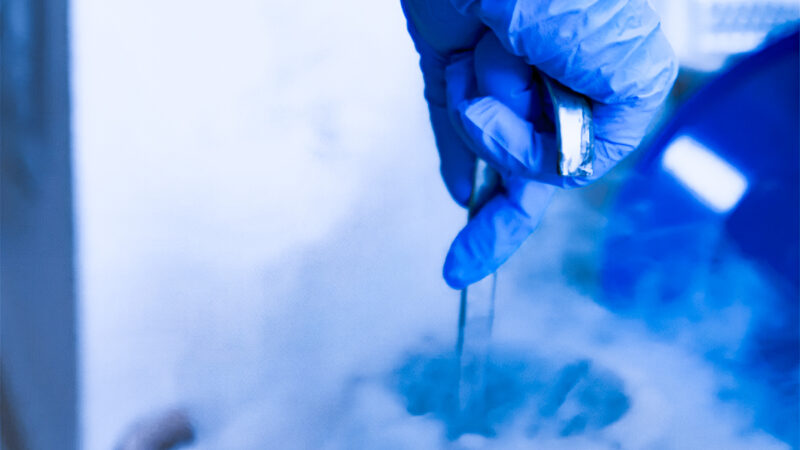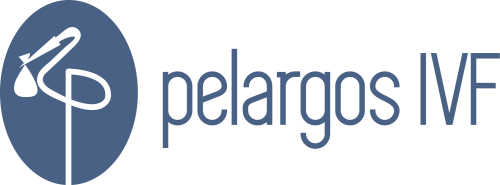
EGG FREEZING
Egg freezing is a fertility preservation method, which should be seen as an investment. Egg freezing should be considered by:
• Women who want to delay childbearing in order to pursue educational, career or other personal goals
• Women diagnosed with cancer, before their surgery, chemotherapy or radiotherapy
• Women at high risk of ovarian cancer
• Women who do not want to store frozen embryos for religious, cultural or other reasons

FAQ
When should I freeze my eggs?
When a woman is born, she bears the highest amount of eggs she will ever have in her life. Over the time they decrease in number. It is said that in every menstrual cycle, about 1000 eggs are recruited and lost, in order for one of them to be used for fertilization. This constant decline explains why a woman in her 40s has only 5% chance of getting pregnant every month naturally.
Basic fertility checks offered by the Pelargos team, like AMH, hormonal check and ultrasound antricle follicle count, assess your ovarian reserve. A clearer picture of your egg quantity, may lead you to opt in or out of fertility preservation.
Age, on the other hand, is the sole independent factor, affecting the quality of eggs. Decrease in quality is difficult to be predicted, but it has been proven that it happens after 40s and the rate of aneuploidies and chromosome anomalies, for example, at the age of 45 is extremely high. Combination of the above makes the best age for egg cryopreservation between the age of 20s and early 30s.
Unfortunately women start worrying about fertility issues later in their life. Till the age of 35, egg freezing can give good results. After the age of 35, the amount and quality of eggs decreases. As a result eggs stored at ages over 38, give lower chances of future pregnancies. If you know that you would like to have a baby one day, but worry that your biological clock will prevent it, contact us. We will present the facts, analyse how it works, explain the limitations and the likelihood of a successful outcome.
What is involved in egg freezing?
In order to retrieve eggs for freezing, the patient undergoes the same hormone injection process like in an IVF cycle. Initially we turn off natural hormones with a birth control pill, even though this procedure can sometimes be avoided, like in cancer patients. Then we stimulate the ovaries with hormone injections. At the same time we prevent premature ovulation from happening with a 2nd injection.
Once we think that eggs have adequately matured, we go ahead with the egg collection. Then the eggs undergo a freezing process with a flash-freezing procedure called vitrification. Eggs can then be maintained frozen for a long time, without decrease in their quality.
How many eggs should I store to achieve a pregnancy?
Based on data from our collaborating embryological laboratories, egg thaw rates of 75% and fertilization rates of 75% are anticipated in women up to 38 years old.
Most women under 38, can harvest more than 10 eggs per cycle. With this amount of eggs stored, the predicted delivery rate for those who return for their eggs is 65% when storage has been done in ages under 38. If storage is done in older ages, chances decrease depending on the woman’s age at the time she freezes her eggs, but are not affected by the age at which she returns to use them.
Is egg freezing safe?
The largest published study of over 900 babies from frozen eggs, showed no increase rate of birth defects when compared to the general population. In addition, results from one study, have showed no increased rates of chromosomal defects between embryos derived from frozen eggs, compared to embryos derived from fresh eggs. In 2014 a new study, showed that pregnancy complications were not increased in pregnancies achieved, through egg freezing.
